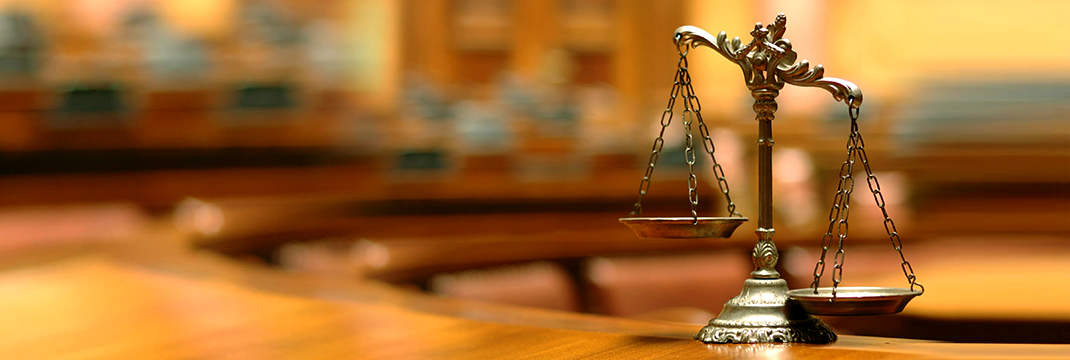
Justice has different meanings for different people. These meanings or opinions can be formed from personal experience or just from an observation of how a situation is handled. Justice can be associated with numerous areas ranging from culture, environment, or society. It does not necessarily have to happen publicly, it can be a personal matter or situation. However, justice is more commonly associated with the court system and related to a criminal act that has been committed.
From a legal standpoint, the term justice is viewed as the right of all people to be treated equally by the law and courts (Black’s Law Dictionary). Ishida interprets the notion “justice” as human relations, laws, orders, etc. corresponding to the norms and requirements (Arrow 135). Justice is also an impartial, fair relation to someone or something (Arrow 70). A fair person is a person who acts impartially (without a negative attitude to someone or something made in advance) according to the truth.
In the sphere of law realization, the formula “everyone must get what is necessary under the law” operates (Ishida 15). This formula has no own contents, sends to the law and has a formalistic character. It, actually, coincides with legality: what is lawful is fair, and what is not lawful is unfair.
People do not always reckon with justice. If that takes place, the judgment starts to act. It does not simply define who is right and who is guilty, but it also makes reckon with its decision. In order that it has power on justice implementation, the relevant laws are necessary. There will be neither justice nor judgment without their existence. The state without laws is no more the state but a chaos kingdom. Laws are necessary for the state exists as they keep order and regulate public relations.
The majority of members of the global multi-cultural society tries to live in consent and compliance with laws without breaking them. A great influence on people’s consciousness is rendered by the justice. The person understands that if he/she breaks the law, it will not be simply wrong or bad, but the punishment will follow according to the norms of the laws and justice.
The notion of justice is a constant issue in routine life. People estimate situations considering them being fair or unfair. It is fair to promote a person who is an expert in a certain field of manufacturing, for example. It is unfair to underestimate a person due to personal biased attitude. Ishida suggests dividing justice into three types: justice of people, justice in the use of laws, and justice of life (Ishida16).
Justice of people
Here is the relation of a person to another person or to any situation involved. Everybody knows that parents can punish their children for a bad mark, very often without finding out a reason. If they acted according to the norms of justice, then they would understand the following facts analyzing the reasons that had led to the problem. Parents have to consider why the child received a bad mark, whose fault is it (Ishida 74). If a bad mark was put because he/she had not prepared for the lesson and had not mastered the material, then such an appreciation and the corresponding punishment would be possible. Though, sometimes it happens that the child knows the material perfectly, and the teacher exceeds his/her powers, estimating the behavior of the child during the break. Speaking more precisely, the teacher put a bad mark on mathematics because the child was running during the break. Thereby, the justice was violated.
In both cases, parents should apply justice in relation to a child. And even if a bad mark was put for a material ignorance, most likely, something remained not understandable for the child. Then, the parents’ justice will consist not of the punishing but trying to understand this subject. If parents behave in a different way, they can get even more problems. It means that justice sometimes can be broken, but if people try to find the main reasons and estimate a situation more precisely, they will see that justice exists.
Justice in the use of laws
In the modern world any community, which lives in the uniform state, is multinational and multicultural. The state is like a keeper of the civilizational culture and justice. This justice depends on the person’s knowledge of the laws concerning the area of his/her work or with which he/she is connected. In case, a person does not know the laws and rights or does not know how to use them, he/she can consider that justice can be broken. People can face the examples of violating justice everywhere: at work, driving a car, in a restriction of freedom of the religious confession, and so forth.
Invite your friends and get bonus from each order they
have made!
Justice of life
Justice of life is the fairest judgment which can only exist. Life laws exist besides the state laws, and if a person breaks them, consciously or unconsciously, the life itself can restore justice.
A saying “He that mischief hatches, mischief catches” (Arrow 118) reflect a vital role of justice. Some people ignore this vital wisdom and behave dishonestly in relation to others. Sometimes, they will get rewards according to their deserts. Here is an example of how this justice is managed. The person led the wife from his friend. The friend ceases to be his friend respectively, but the business does not come to an end. Some time passes, and the person finds out that his wife is unfaithful to him. He is furious. He considers that it breaks justice as he loved her. A person did his best to earn as much money as possible and did everything for the sake of the family. He is stressed and unsettled. Certainly, a man experienced all these troubles because he had done similar harm to another person. The life worked over it and restored the justice. The person receives the same relation from other people as he treats them (Arrow 70). Here is the justice of life. If a person is friendly, always ready to help, and uses justice concerning others, then he/she receives rewards according to his deeds. It draws to himself/herself honest and open-hearted people.
Justice is a subject of many disputes both in an everyday life and at the level of the states. Sometimes it is difficult to understand whose side takes justice. The purposes of justice remain the most desirable in the global and multi-cultural society, especially when society does not want to be reconciled with the cases of violation of moral standards and laws. The search for justice is one of the powerful levers of civilization development and the statement of a fair social system.



